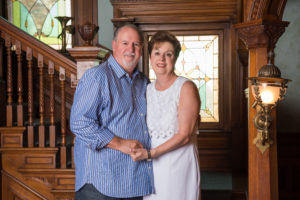 Create in me a clean heart, O God; and renew a right spirit within me. (Psalm 51:10 KJV)
Create in me a clean heart, O God; and renew a right spirit within me. (Psalm 51:10 KJV)
Dressed in jean shorts and an old shirt, I pull on my gardening gloves, grab the Folgers coffee can where I keep my gardening tools and head to the patch of dirt by the screen porch. Winter has now passed, and my Florida spring garden needs refreshing. With the annuals from last year gone, invasive ferns have already encroached on the area, and a number of weeds have popped up.
I crouch on my knees beside the bed and dive into my work. Weeds need pulling, dirt needs loosening and holes need digging. As I work, I think about the beauty that will take place once I’m done. For it is here I create a seedbed of discovery where the flowers I bought at the nursery can begin to grow and bloom.
But first I need to dig into the dirt. When peat and fertilizer get mixed into the soil and dust flies everywhere, I’m in the midst of it. I ruthlessly pull weeds, dig holes for planting, scoop up soil and pat it down around the new plants. Although I wear gloves, dirt manages to find thin places and tears in the fabric, and the powdery Florida sand works its way beneath my fingernails. Fine grains have even seeped through the canvas of my tennis shoes. At the end of my labor, the flower bed looks pretty, but I don’t. I’m a mess. I’m covered with dirt.
But I really don’t mind the dirt. Strangely, when the dirt and I intermingle in the garden, I feel closer to God and the outdoors I love. It’s here pulling weeds and digging in the dirt, that God often whispers His words of wisdom to me, life changing truths written through the analogies of nature. It often becomes the seedbed of my own discovery.
Like digging in the garden to make things beautiful, life sometimes means getting down into the dirt and feeling a little dirty in order to find the truth. Cleaning up our lives means conquering avoidance. Overcoming problems means facing things we don’t like, plunging forward, grappling with the unlovely things in our relationships or our own natures. We can’t pretend they’re not there. We can’t turn our head. We can’t stay on our gardening pillow. Sifting through the dirt can lead us to the seedbed of our discovery.
“If you call out for insight and cry aloud for understanding, and if you look for it as for silver and search for it as for hidden treasure, then you will understand the fear of the Lord and find the knowledge of God. For the Lord gives wisdom and from his mouth come knowledge and understanding. He holds victory in store for the upright, he is a shield to those whose walk is blameless” (Proverbs 2:3-8).
Although I like the pursuit of gardening and don’t even mind getting dirty, my reward at the end is a lovely, refreshing shower. The flow of cool water spilling over my sweaty and dusty body cleanses and renews me, and I am ready for the rest of the day.
When we honestly look at ourselves in this seedbed of discovery and allow God to show us the changes we need to make, He is so amazingly gracious. He doesn’t leave us there in our sin or make us wallow in our past even though we may fear He will. For when we focus our gaze on Him and allow His word to refresh our souls, His Spirit washes through us and makes us clean. He renews our hearts and minds and sets us on a path to a future of grace and goodness so we are ready for what comes next.
But sometimes it begins by digging down into our own seedbed of discovery so we can learn the truths God has waiting for us.
“Be transformed by the renewing of your mind.” Romans 12:2
What do you need to face right now? How can God’s Holy Spirit refresh you and make you clean?
©Linda Rooks 2019
Fighting for Your Marriage while Separated is now available at your favorite online retailers.















